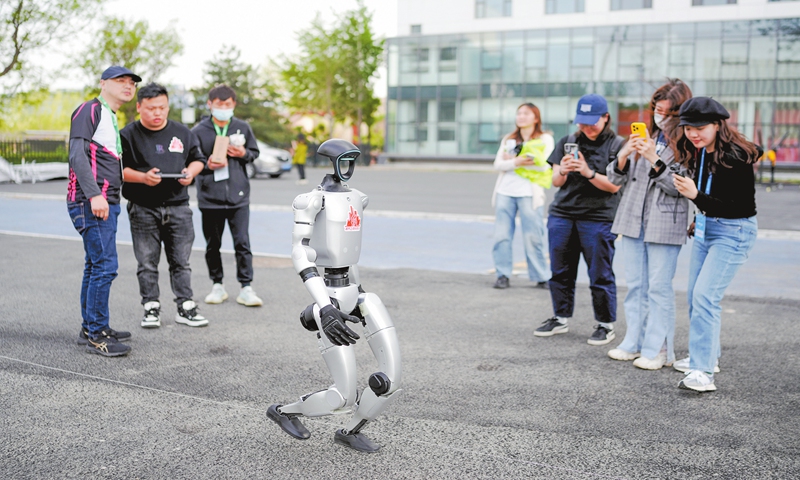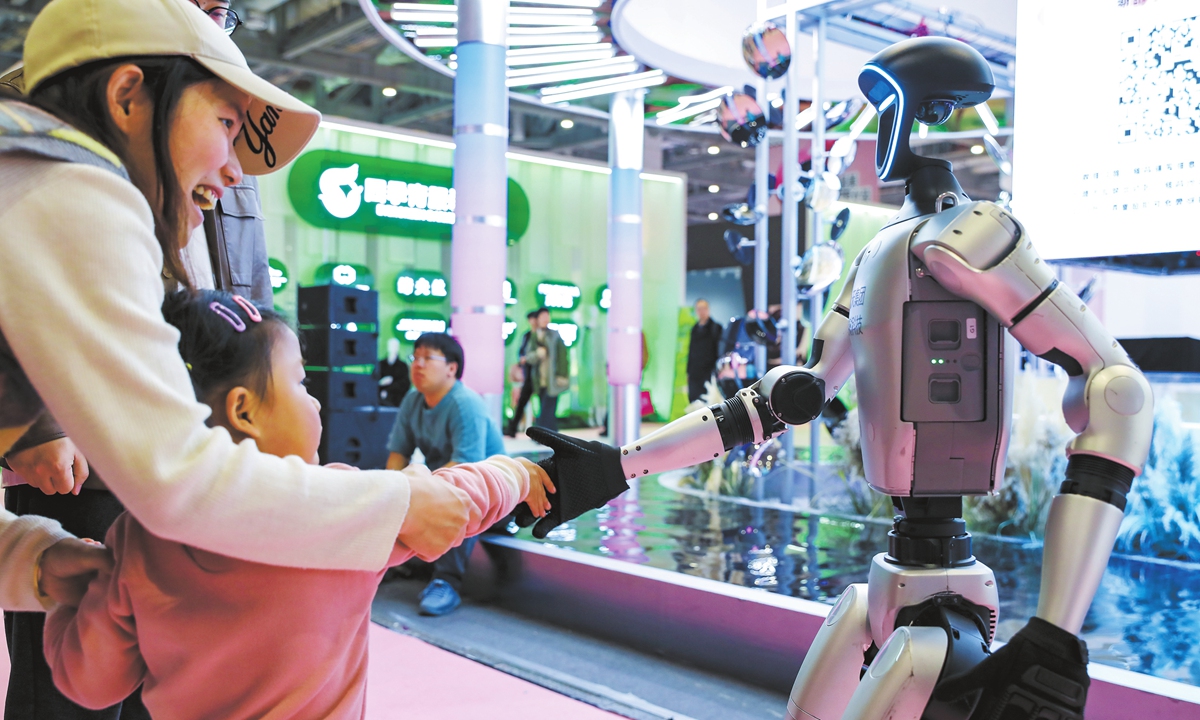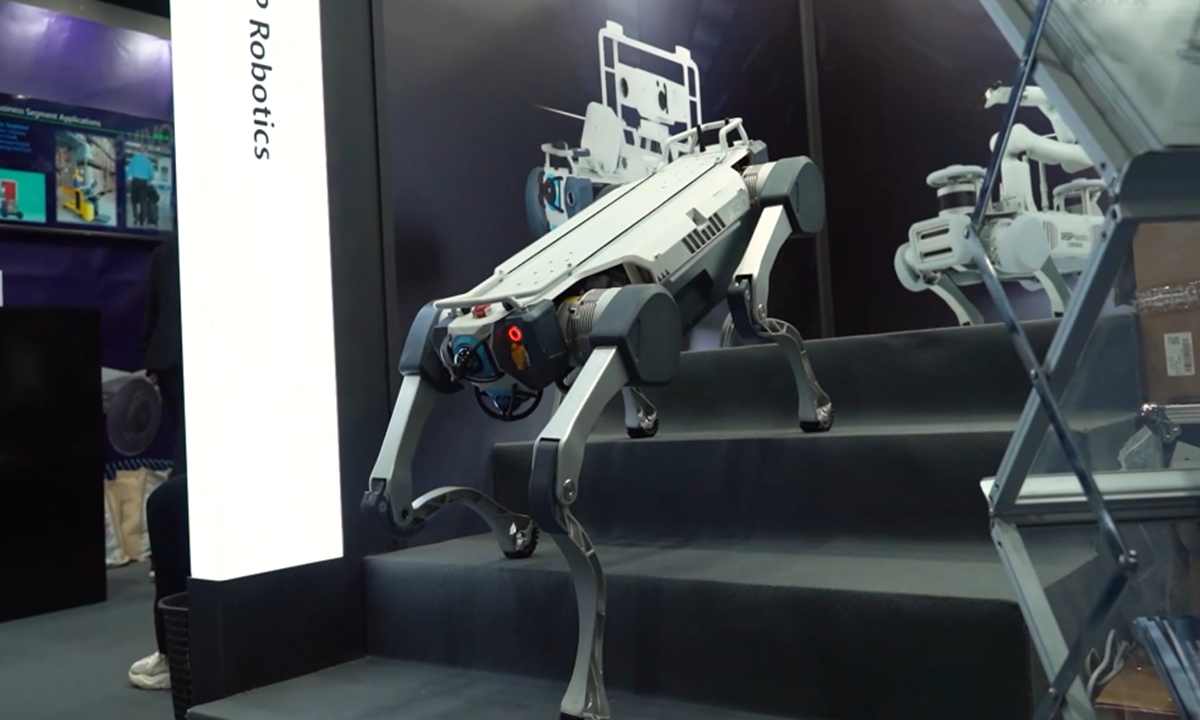
Promotional poster for the full-size humanoid robot combat event Photo: Courtesy of EngineAI
The world's first combat tournament featuring full-sized humanoid robots is to be held in Shenzhen, South China's Guangdong Province in December, according to organizers on Friday.
The EngineAI Robot Free Combat Tournament: "Mecha King" marks a significant milestone in the robotics industry. It aims to push the boundaries of artificial intelligence (AI) and robotics technology, driving industrial upgrades and large-scale applications, industry insiders noted.
According to the organizers, the event is designed to test robots' physical limits and intelligence levels through highly competitive and visually engaging combat scenarios. The competition will also introduce pioneering rules for humanoid robot combat, requiring robots to simulate human movement patterns and make real-time intelligent decisions in complex environments.
EngineAI, a robotics company based in Shenzhen, will supply several models of humanoid robots for the competition. The company plans to open-source the robot codes, allowing participating teams to customize and train the machines.
Yao Aiwen, co-founder of EngineAI, told the Global Times on Friday that the competition aims to create stronger, more agile and smarter robots, adding that it will leverage the robust robotics ecosystem of the Guangdong-Hong Kong-Macao Greater Bay Area and integrate sports with AI technology to drive breakthroughs in core technologies such as robot perception, decision-making and execution.
According to Yao, the significance of the game lies in its testing the robots' ability to learn. When the robots are able to dance, exercise and fight, they will be made lighter for application in people's daily lives and production. This will accelerate the large-scale deployment of humanoid robots in industrial, service and medical sectors, opening up a new track for high-quality development in the intelligent economy.
In addition to the Shenzhen event, humanoid robots are also gearing up for battle in the world's first-ever robot fighting competition to be held in Hangzhou, East China's Zhejiang Province on May 25. The competition includes demonstration and competitive matches, with humanoid robots showcasing combat moves and robots controlled by humans in real-time fighting in the arena, the China Media Group reported.
Hangzhou-based robotics start-up Unitree Robotics will be the partner of a mecha fighting arena match at the Hangzhou competition. A representative from the company told the Global Times that the team has been actively preparing for the competition, focusing on enhancing the robots' balance and stability.
Robots underwent stress tests to prove their combat readiness and help organizers fine-tune the rules. Remote-controlled during fights, these robots are being evaluated not just for strength but also for learning and adaptability.
"The algorithms optimized for extreme conditions like combat could potentially benefit our daily lives," said Chen Xiyun a marketing manager at Unitree. "For example, robots with better balance can work more stably and efficiently when handling heavy loads. This is the original intention of the competition - to continuously improve robot performance and optimize algorithms for practical applications."
"What we're witnessing is the transition of precision robotics from the lab to the real world," Wang Peng, an associate research fellow at the Beijing Academy of Social Sciences, told the Global Times on Friday. These events not only provide a practical testing platform for robot technology but also help train relevant talents through competition, accelerating the large-scale deployment of humanoid robots in various application scenarios, Wang added.
The events reflect broader developments in the region's robot sector. According to the Zhejiang provincial government, Hangzhou has more than 200 robot related enterprises, with a robot industry output value of 15 billion yuan by 2024.
Guangdong's industrial robot output exceeded 240,000 units or sets in 2024, marking a year-on-year growth of 31.2 percent. One out of every three industrial robots in China is now made in Guangdong, the Xinhua News Agency reported.



